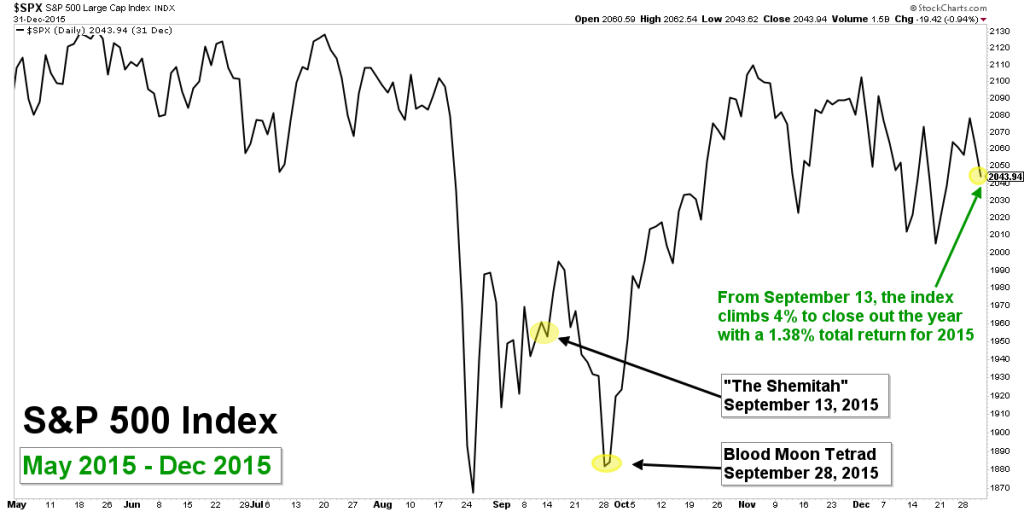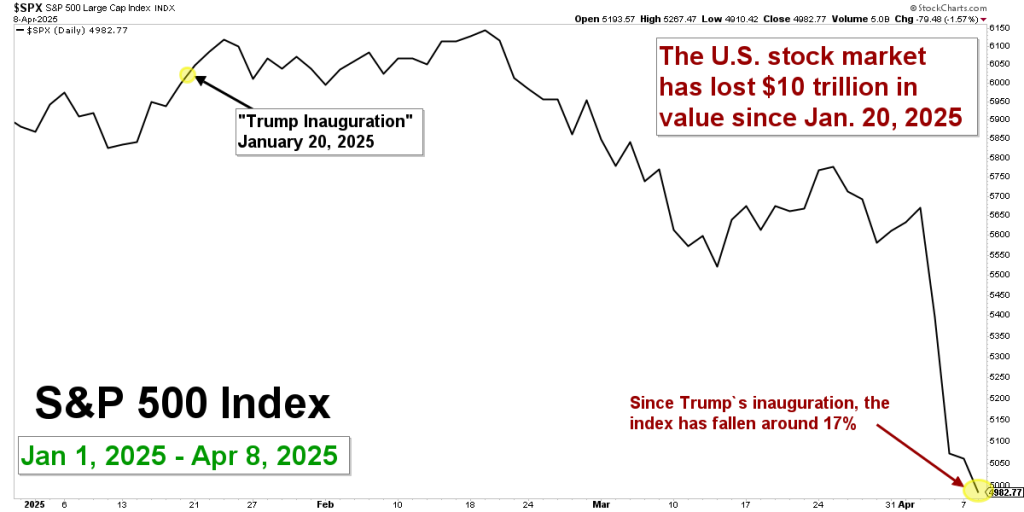Back in 2014, Jonathan Cahn’s best-selling book, The Mystery of the Shemitah, shook evangelical America. Christians nationwide sold stocks, stockpiled food, and braced for an imminent economic crash, convinced it would be God’s supernatural judgment on America.
The prophetic date highlighted was September 13, 2015, marking the end of the biblical Shemitah year.
To amplify the drama, prophetic teachings pointed to the “Blood Moon Tetrad,” specifically the fourth and final blood moon occurring on September 27-28, 2015, coinciding with the Jewish Feast of Sukkot (also known as the Feast of Tabernacles).
It was a prophecy, wrapped in financial panic, garnished with religious certainty, and tailor-made for TV.
Except, the crash never came.

Sure, markets corrected slightly in 2015, but nothing close to the apocalyptic scenario that was sold.
Many sincere believers missed years of gains, guided more by fear-driven prophetic warnings than by sound financial judgment.
Perhaps unsurprisingly, many of these same voices who tied God’s judgment to economic downturns are conspicuously silent today.
Here’s the inconvenient irony they likely don’t want to discuss: Since President Trump entered the White House in January 2025, U.S. stock markets have lost more than $10 trillion in value.

Now, if you followed their logic before, shouldn’t these same prophetic voices be calling this massive market decline in 2025 a sign of divine judgment?
But all we hear is the sound of silence.
Yet, this highly selective silence speaks loudly nonetheless and exposes a troubling reality: the dangerous alignment of religious messaging with partisan politics.
Under a Democratic administration, economic downturns are labeled as “God’s judgment.”
Under a Republican administration? Suddenly, it’s just “the market being the market.”
It’s unlikely such prophetic hypocrisy will stop anytime soon, as fear and partisanship still sell like hotcakes.
Nonetheless, when our gospel is partisan in nature, we lose something priceless: our prophetic witness. That is, we distort the beauty of the gospel and undermine our credibility.
What should be obvious, but is clearly not, is that the Bible isn’t a crystal ball for predicting stock market crashes, and God’s judgment isn’t partisan.
Jesus calls us away from fear-driven sensationalism and political idolatry.
Any gospel that bows to politics ceases to be good news. Yet, there’s nothing to stop us from reclaiming the integrity of our message. We can choose to commit to a gospel that transcends politics at anytime.
And well we should for a prophetic voice that follows partisan scripts isn’t prophetic—it’s propaganda.
incoming searches: shemitah prophecy, blood moon prophecy

